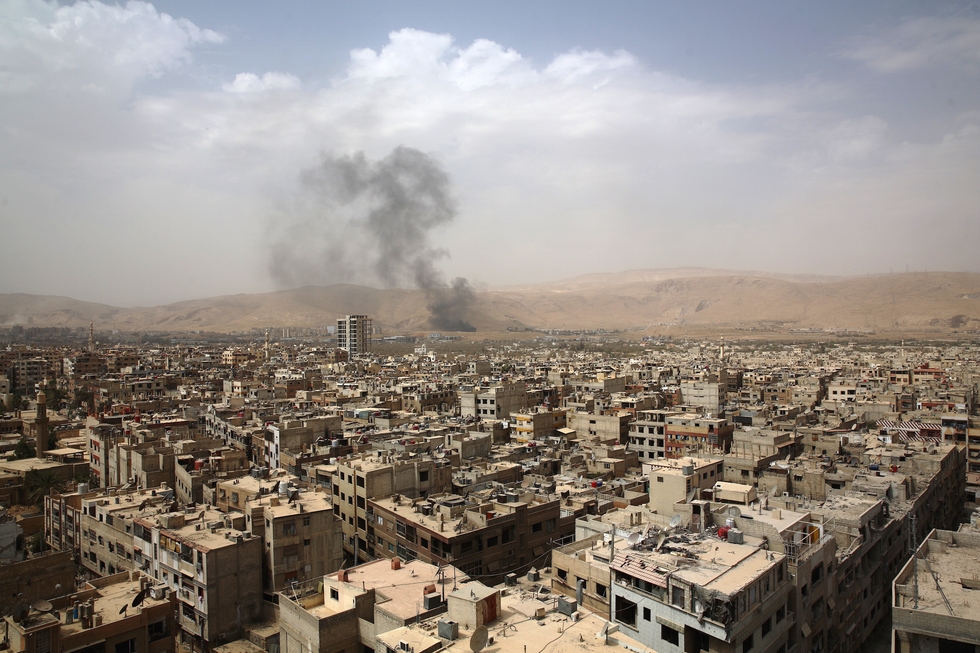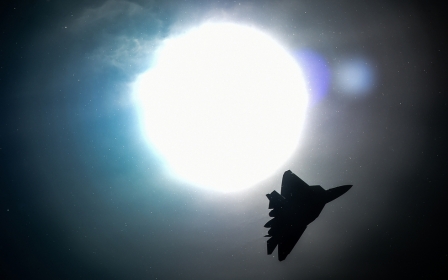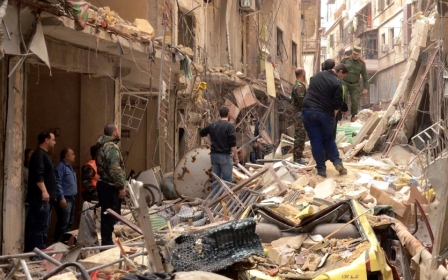Assad says Western governments are 'supporting terrorism'

In an interview with Russia Today, Syrian president Bashar al-Assad blamed the exodus of refugees from the country to Europe on terrorism that is supported by western countries.
“Those refugees left Syria because of the terrorism, mainly because of the terrorists and because of the killing, and second because of the results of terrorism," he said.
"When you have terrorism, and you have the destruction of the infrastructure, you won't have the basic needs of living," he added, according to a transcript made available on Wednesday.
"So, the West is crying for them, and the West is supporting terrorists since the beginning of the crisis when it said that this was a peaceful uprising," said Assad.
Assad criticised the US-led international coalition against the Islamic State (IS), saying that the air strikes have no bearing on the group.
“The coalition has failed and has no real impact on the ground,” he said. “At the same time, countries like Turkey, Qatar, Saudi Arabia and western countries which provide cover for terrorism like France, the United States, or others, cannot fight terrorism. You cannot be with and against terrorism at the same time.”
US adamant Assad has no role in fighting IS
Amidst US reports that Russia, Syria’s long-standing ally, is building an air base in Latakia and has sent tanks and artillery to the Syrian army, the US has underlined that Assad has no role in coalition operations against IS and must step down to allow a political settlement.
Washington warned Russia on Tuesday that Syrian leader Bashar al-Assad has Secretary of State John Kerry called his Kremlin counterpart Sergei Lavrov to restate the US position after Russia's President Vladimir Putin promised to maintain military support for Assad.
"Secretary Kerry made clear that Russia's continued support for President Assad risks exacerbating and extending the conflict, and undermining our shared goal of fighting extremism," his office said.
Kerry "reaffirmed the US commitment to fight ISIL with a coalition of more than 60 countries, of which Assad could never be a credible member, and emphasised the US would welcome a constructive Russian role in counter-ISIL efforts," it added, using another acronym by which the Islamic State is known.
"The secretary stressed that there is no military solution to the overall conflict in Syria, which can only be resolved by a political transition away from Assad."
No Iranian army in Syria
The Syrian president denied that there were Iranian troops fighting alongside his army, but acknowledged the strong alliance between the two governments.
"Iran supports Syria and the Syrian people," Assad stated. "It stands with the Syrian state politically, economically and militarily."
"When we say militarily, it doesn't mean - as claimed by some in the Western media - that Iran has sent an army or armed forces to Syria. That is not true," said Assad.
"It sends us military equipment, and of course there is an exchange of military experts between Syria and Iran," he said.
"This has always been the case, and it is natural for this cooperation to grow between the two countries in a state of war."
Meanwhile, Prime Minister Benjamin Netanyahu will travel to Russia next week for talks with President Vladimir Putin on Moscow's military support for the Damascus regime and "threats" facing Israel, his office said on Wednesday.
Netanyahu will speak with Putin about "the deployment of Russian military forces in Syria," a statement said.
"He will describe the threats to Israel following the military reinforcement in the Syrian arena and the supply of weapons to Hezbollah and other terrorist organisations."
Putin pledged on Tuesday to continue military support for Assad after Washington sounded the alarm over an apparent military build-up by Moscow in Syria.
US military officials said on Monday that Russia appeared to be establishing a forward air base in Syria and had sent tanks and artillery to defend it.
Middle East Eye propose une couverture et une analyse indépendantes et incomparables du Moyen-Orient, de l’Afrique du Nord et d’autres régions du monde. Pour en savoir plus sur la reprise de ce contenu et les frais qui s’appliquent, veuillez remplir ce formulaire [en anglais]. Pour en savoir plus sur MEE, cliquez ici [en anglais].




